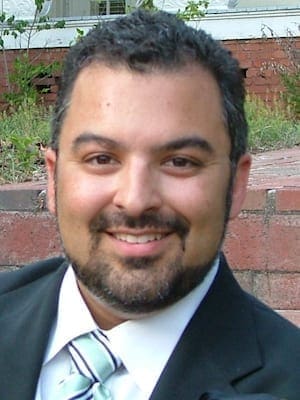Every so often, I stumble upon a new way to read and study the Bible.
Scripture tells us that it is good to meditate on God’s Word day and night (Psalm 1:2), but it is difficult to know how to dig deep in its teachings.
In exploring the lessons of the psalms, Bible scholar F. B. Meyer once wrote that one way to read the Bible is to ask two simple questions about the text: What is the text’s purpose? And what is its reach?
After some reflection, I think that asking these two questions in a slightly different way, with a third question appended, may actually help us study the Bible more effectively and apply it more faithfully.
First, when studying a section of the Bible, ask about its purpose, as Meyer suggests.
For instance, if you are reading Jesus’ parables – say, the Parables of the Lost in Luke 15 – you may note that the purpose is tied to Jesus’ conflicts or encounters with others.
In the case of the parables in Luke 15, the context is related to Jesus’ conflict with the Pharisees.
Luke 15:1-2 states that the Pharisees complained of Jesus eating “with tax collectors and sinners.” How can a rabbi, especially one with messianic hopes, eat with the outcasts of society?
In telling the Parables of the Lost Sheep, Lost Coin and Lost Son, Jesus affirmed God’s joy in seeing even one sinner experiencing God’s saving grace.
The purpose of these parables is obvious: Jesus is teaching the Pharisees that God is redeeming all of humanity, not just the well-liked, and that celebration is a natural response. We are to rejoice that God embraces everyone, not just some of us.
A second question relates to the text’s request. Every time we read the Bible, which is inherently about God acting in the world, the Holy Spirit demands a response.
That response may be, for instance, to expand the magnitude of our love or hasten to the father in obedience or change something about ourselves that does not fit in God’s idea of a holy and pleasing lifestyle.
When we ask what the Bible is requesting of us, we are sure to see the challenges embedded in reading God’s Word: God saves, we are to believe. God embraces, we are to love. God forgives us; we are to forgive everyone, even enemies. God heals, we are to be catalysts of Jesus’ healing presence for others, the balm for the downtrodden and heavy-laden.
The request of the Bible, therefore, is tied to another question we may ask of the text: What is the text’s reach?
The rhythm of the Christian life is similar to the cardiovascular system in the body.
There is a constant flow of spiritual blood going into our hearts for cleansing and renewal, and an outward movement of new life that we have in Christ Jesus.
Scripture reaches into us in order to transform our hearts and minds; it inspires us to reach out to others with the good news of the gospel of Christ, the Word that outlines where God is at work in the world.
No wonder the Bible says that God’s Word is a “lamp unto our feet, and a light of our path” (Psalm 119:105).
Light, so said ancient notions of biology, originated from within each person. That is why Jesus said that “the eye is the lamp of the body” (Matthew 6:2), so if the light is good, you will know where you are to go and just how far the Spirit’s reach extends.
Likewise, our path brings us heavenward to the heart of God as well as outward to the needs and pleadings of those around us.
If the Word dwells in us richly, and we in the Word – then we will surely follow in the footsteps of the Lord.
When you study your Bible next time, ask these three questions about it: What is its purpose, what is its request, and what is its reach? The Holy Spirit will take care of the rest.
 Joe LaGuardia is senior pastor of Trinity Baptist Church in Conyers, Georgia. He is the author of “Awe and Trembling: Reflections for the Christian Journey,” a book of articles and homilies. A version of this article first appeared on his blog, Baptist Spirituality, and is used with permission.
Joe LaGuardia is senior pastor of Trinity Baptist Church in Conyers, Georgia. He is the author of “Awe and Trembling: Reflections for the Christian Journey,” a book of articles and homilies. A version of this article first appeared on his blog, Baptist Spirituality, and is used with permission.
Joe LaGuardia is senior pastor of First Baptist Church in Vero Beach, Florida.

